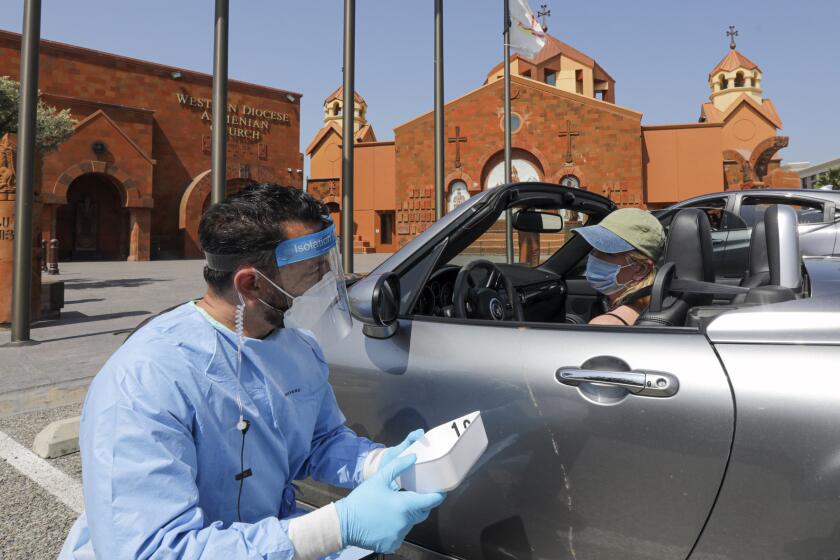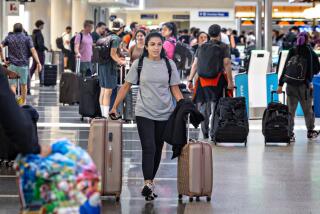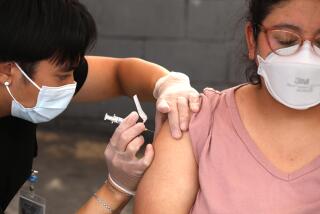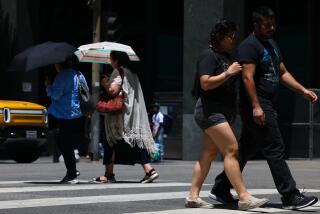Op-Ed: People ask me if I’ve recovered from COVID-19. That’s not an easy question to answer
- Share via
“Are you recovered yet?”
I can’t count how many times I’ve been asked this question in the three months since I came home from the hospital after a near-death experience with COVID-19. I’m grateful for the concern. I don’t know if I would have made it through those 17 days in the hospital, including almost a week on a ventilator, without the thoughts, prayers and other support that I received from family, friends and strangers.
But when I answer this question, explaining the state of my lungs, cough, vocal cords and muscle weakness, I sometimes feel I’m disappointing the questioner, who just wanted a simple “yes.”
So why can’t I just say “yes” when asked if I’ve recovered? Because, to be honest, I don’t know if that’s true.
When it comes to COVID-19, what is “recovery”? One definition is “a return to a normal state of health, mind or strength.” But what is “normal”?
According to the COVID-19 dashboard maintained by Johns Hopkins University, more than 6 million people around the world, including more than 900,000 in the United States, have recovered from COVID-19. But I suspect that not everyone counted in this statistic feels recovered.
Although 42 of the 105 COVID-19 testing sites in Los Angeles, by our estimate, are in walk-up locations, many Angelenos without cars don’t live close enough to walk there.
Was I recovered when I came home from the hospital? Or when I tested negative for COVID-19 after having previously tested positive? Or when I tested positive for antibodies? Or when my lingering cough, which stuck with me for two months after I left the hospital, finally went away?
Recovering from a severe case of COVID-19 is not like switching a light on or off. It’s more like a dimmer switch, where the light gets brighter, then darker, then brighter again. And the process of recovering often takes much longer than many patients and their loved ones expect.
When I was discharged on April 1, my husband and parents-in-law picked me up to take me home. My father-in-law is hilarious, and, even though I had just survived a near-death experience, I soon found myself laughing uncontrollably at his commentary on our car ride — laughing, then wheezing, then finding it hard to breathe.
He kindly volunteered to remain silent for the rest of the ride. I wondered how long it would take for me to be able to really laugh again.
Or walk. When we got home, walking the 20 or so feet from the car to the front door left me gasping for air and about to collapse. Before I came down with COVID-19, I could run for miles; after returning from the hospital, I needed a wheelchair to go even half a block.
During my 2½ weeks in the hospital, I wasn’t able to shower, so taking a long, hot shower was high on my list of things to do upon arriving home. But I couldn’t stand up long enough, so I had to take a bath that first day home. I placed a plastic stool inside the bathtub so I could sit down for future showers.
In just the past few weeks or so, I have improved dramatically, and many of my issues have resolved themselves. I graduated from the wheelchair to walking short distances to walking a few miles. My voice, hoarse because of how the ventilator damaged my vocal cords, slowly returned. I regained the 20 pounds I had lost (and then some). My cough, so forceful it made my chest and shoulders ache, finally went away. I can laugh again.
But I’m still not back to normal, if normal means the way I was before COVID-19. I can’t jog — to say nothing of run — for more than a few minutes. I took a gallon of milk out of the refrigerator the other day for my son, and it felt like a 30-pound barbell. I tried reading a book about fire engines to him, and my voice, while much better than before, can’t make the “whoo-whoo” noise of a fire truck.
I recently returned to the hospital for a follow-up visit with my pulmonologist. He gave me some breathing tests and reviewed my chest X-rays, and on the whole, my lungs have improved. But they’re not back yet. The tests showed “decreased total lung capacity” and “moderate reduction in gas exchange.”
How significant and lasting is this? I’ll know more after my September follow-up. But I do know I’m a lot better off than many other COVID-19 survivors.
“I’ve seen many COVID-19 patients whose lungs are so damaged they need transplants,” my pulmonologist told me. “You’re lucky.”
Indeed I am. Although I might have lung issues, there are many other things I haven’t had. I haven’t experienced dangerous blood clotting or strokes. I haven’t had cognitive or psychological issues, such as memory deficits or delirium. I haven’t had heart, kidney or liver problems. I haven’t had gastrointestinal difficulties, muscle aches or fatigue. I doubt the survivors who do face such challenges feel very recovered.
The next time you chat with someone who had a serious case of COVID-19, try asking, “How’s your recovery going?” instead of “Are you recovered yet?” For all too many of us, the answer to the second question is either “no” or “I don’t know” — and when that will change is anyone’s guess.
David Lat is the founding editor of Above the Law, a legal news website, and a managing director in the New York office of Lateral Link, a nationwide legal recruiting firm.
More to Read
A cure for the common opinion
Get thought-provoking perspectives with our weekly newsletter.
You may occasionally receive promotional content from the Los Angeles Times.











